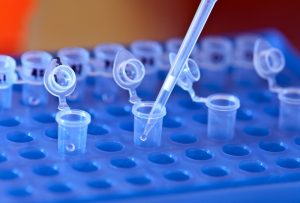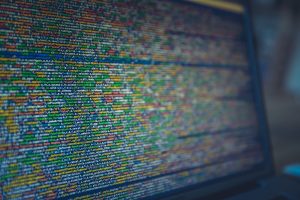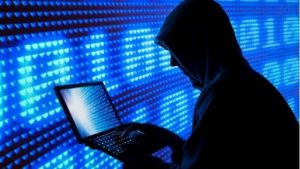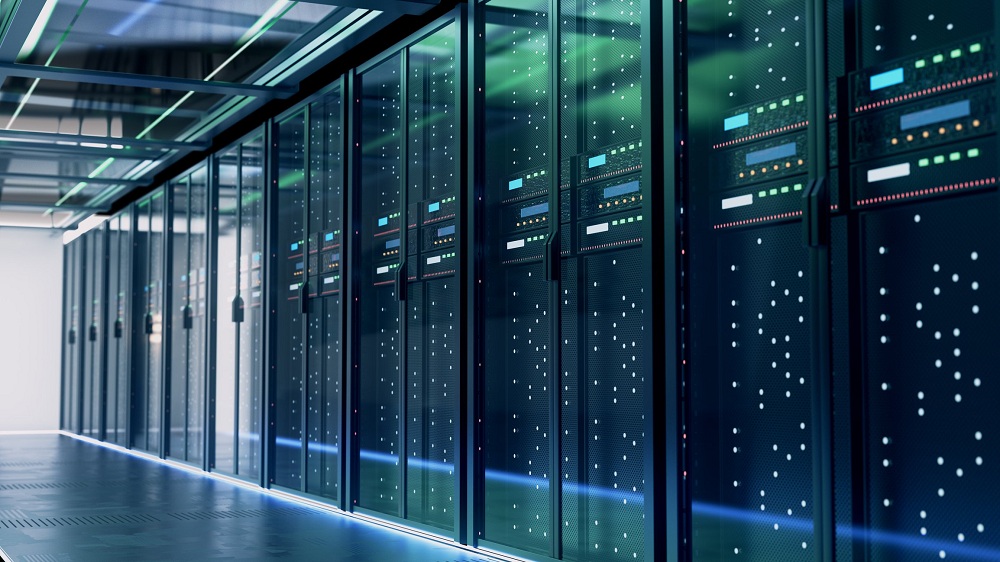You can disagree with DNA databases all you want; if your third cousin or closer relative put their DNA in a registry, chances are, you can already be identified in a database.
These were the findings of research published by Columbia University scientist Yaniv Erlich. According to his research, around 60 percent of Americans with European ancestry can be identified on consumer DNA registries such as AncestryDNA and 23andme. Using the data storage, these websites could pinpoint any American of European descent in the near future. And by implicate, he means the FBI and the police’s methods of using government and consumer DNA databases to track down criminals.
 There has been a long-standing debate about the ethical practices of DNA databases. DNA is the molecule in your cells that carries your genetic code. Each person carries a unique code (except for identical twins, but that’s a 3 in 1000 chance) that connects them to their ancestors and pass onto their offspring. When you leave parts of your DNA (hair, saliva, bodily fluids, or anything on your body that has your cells), it can be traced back to you. On one hand, having everyone’s DNA in a database provides so many benefits in terms of health, genealogy, and security. On the other hand, it comes at the price that Americans lose their privacy to their own DNA, an item that many believe shouldn’t be in the government’s hands unless you’ve committed a crime.
There has been a long-standing debate about the ethical practices of DNA databases. DNA is the molecule in your cells that carries your genetic code. Each person carries a unique code (except for identical twins, but that’s a 3 in 1000 chance) that connects them to their ancestors and pass onto their offspring. When you leave parts of your DNA (hair, saliva, bodily fluids, or anything on your body that has your cells), it can be traced back to you. On one hand, having everyone’s DNA in a database provides so many benefits in terms of health, genealogy, and security. On the other hand, it comes at the price that Americans lose their privacy to their own DNA, an item that many believe shouldn’t be in the government’s hands unless you’ve committed a crime.
So before you decide to submit your DNA to find long-lost family members or find out what percentage of Asian you really are, think twice, read on, and decide whether putting your DNA in a databank is worth it.
The Good: Health, Security, and Genealogy
 The first DNA national database started in the United Kingdom in 1995. By 2006, it had 2.7 million DNA profiles (around 5.2 percent of the population) taken from volunteers and crime scenes. In 2015, it increased to 5.7 million. The UK government allowed police to take DNA samples from crime scenes and from people convicted of crimes and place their DNA on the database.
The first DNA national database started in the United Kingdom in 1995. By 2006, it had 2.7 million DNA profiles (around 5.2 percent of the population) taken from volunteers and crime scenes. In 2015, it increased to 5.7 million. The UK government allowed police to take DNA samples from crime scenes and from people convicted of crimes and place their DNA on the database.
In England and Wales, anyone arrested and suspected of a crime had to submit a DNA sample. If found not guilty or not charged with a crime, they could choose to have their data deleted. In Scotland, those acquitted could be removed from the database.
Their system recorded unidentified DNA samples from unsolved investigations. This proved to be useful when they experienced a “cold hit” times when a new DNA profile added to the database matched old, unsolved DNA profiles. This has allowed authorities to find new suspects in the investigation and solving cases.
Outside of the United States and the UK, more nations have seen the need for DNA databanks. Out of 149 countries in a 2008 Interpol study, 54 nations already had a national DNA databank, while 26 plan to have one.
In the US, we have a national database called the Combined DNA Index System (CODIS) that works on a national, state, and local level. As of 2011, we had over 9 million records, making us the largest database in the world. Added to the fact that there is a growing public approval for people turning to consumer databases just for the fun of it. CODIS helps the police find criminals, identify missing persons, and determine human remains.
By 2015, however, former president Obama wanted to press forward the idea of a national database where everyone was involved. To test this, the government ran a database made of one million volunteer DNA samples. The argument was that people could be protected for healthcare reasons and against wrongful criminal implications. In 2018, US authorities caught the Golden State Killer, a serial killer, rapist, and burglar who committed over a hundred crimes in California from 1974 to 1986. They caught him after over 40 years due to DNA evidence now becoming more accessible.
Apart from detecting crimes, DNA databanks can prevent people from being falsely accused. Evidence such as witness testimonies may be misleading, but a DNA sample from a crime scene may usually prove a strong case. It could save innocent people from imprisonment or execution.
DNA databases also allow people to reconnect with long-lost family members. In China, police have helped over 2,000 abducted children reunite with their biological parents thanks to their national database. And reconnecting with family members can help your health as you can both determine the genetic flaws that can cause diseases through your DNA as well as find family members and track down potentially hereditary diseases.
The Bad: Security over Privacy?
The biggest argument against DNA databases is that it could mean the loss of privacy. DNA is one of the most permanent and unalterable parts of our identity; instead of only criminals and suspected offenders on a database, the government can have access to everyone’s DNA. With over 10 million Americans participating and new tech allowing people to identify relatives, it may only be a matter of time before most of the population is on some sort of database. It would supposedly turn into a Big Brother scenario.
 There’s also the question of managing the database. If the government database is hacked, everyone’s DNA could fall into the wrong hands. Hypothetically speaking, hackers could be paid to switch criminals’ DNAs with that of an innocent person.
There’s also the question of managing the database. If the government database is hacked, everyone’s DNA could fall into the wrong hands. Hypothetically speaking, hackers could be paid to switch criminals’ DNAs with that of an innocent person.
DNA databases may also be a sign of where technology is leading humankind and the downfall of our privacy. In an era where Siri and Amazon Alexa can take orders like a personal assistant, where computers can recreate your voice and mannerisms, where Facebook software can recognize your face on a photo, and where speakers can listen in on our conversations, our DNA is one of the few things we have of ourselves. Soon, it could be in the digital sphere as well.
In California, hospitals have been collecting DNA samples from babies born after 1983. Originally, doctors prick babies’ feet and use five drops of blood to determine congenital disorders so that they can provide early diagnosis that could save lives in the long run. And it’s effective, saving almost 2,500 children from 2015 to 2017. However, they have now increased those drops of blood to six, using that extra blood as a DNA sample that belongs to the state.
This practice is not uncommon, as various states do this, too. Some states destroy the samples after a year, while 12 states keep it for at least 21 years. In California, however, there is no time limit. These samples are kept in state-run databanks where it can be purchased for outside research. Parents have the right to request they destroy their child’s sample, but the law does not require telling the parents before storing or selling their child’s DNA.

On one hand, a nationwide DNA databank could save lives, protect innocent people, and reconnect long-lost families. On the other hand, you would need to sacrifice your privacy and your right to your own body. If this were the case, would you be willing to add your DNA to the database? If not, make sure you and your immediate family avoid the temptation of commercial and government databanks. Unless you already live in a state that collects your DNA from birth, in which case your DNA is probably already on record.